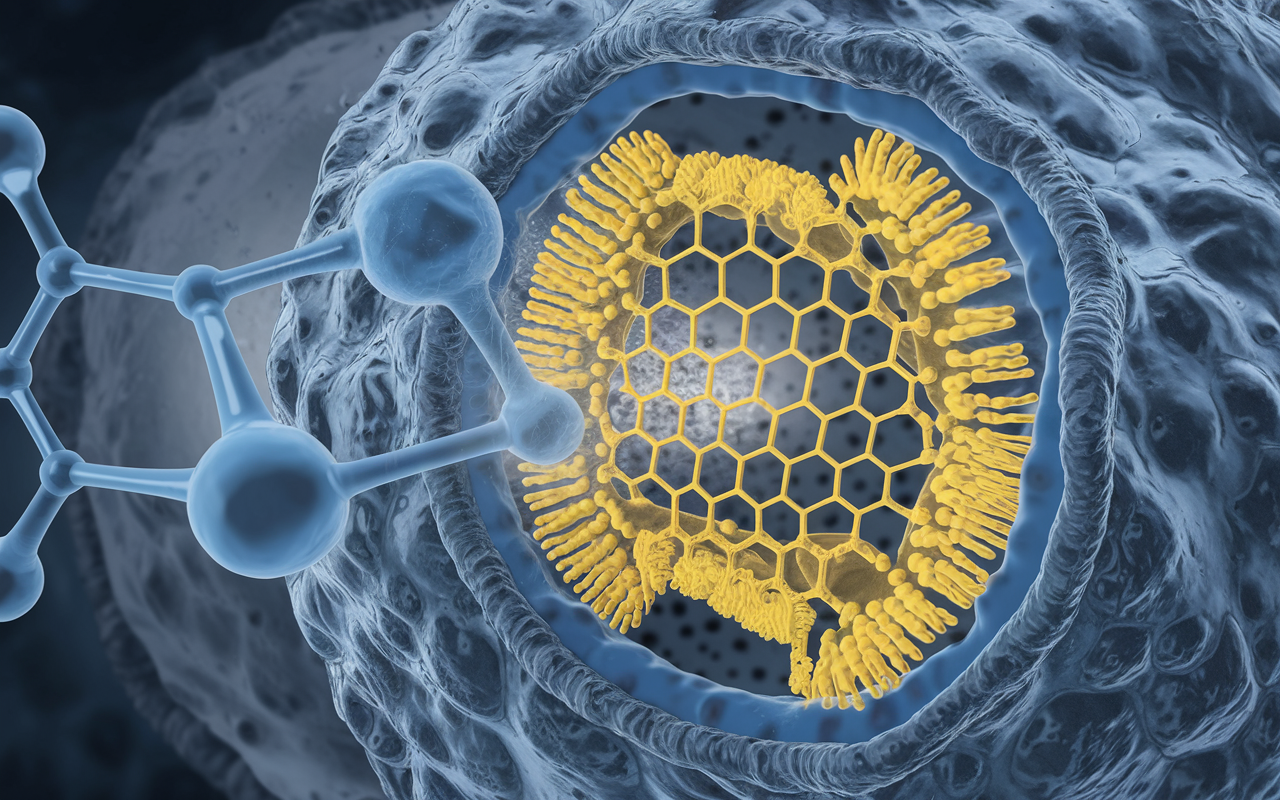Welcome BioPharmaPulse Readers
In the rapidly evolving world of biopharmaceuticals, each day brings groundbreaking advancements. Today, we're diving into innovations that are shaping the future of medicine.
What's in this issue:
- 🧬 Discover a new technique revolutionizing therapeutic delivery.
- 🔬 Uncover how a candidate drug is boosting anti-tumor immunity.
- 💊 Learn about Novartis's strategic acquisition in microRNA therapeutics.
- 💡 Explore the potential of neddylation-targeted therapies in liver cancer.
- 🧪 Fungi on our skin might hold the key to new antibiotics.
Inspiration of the Day
"Innovation is the unrelenting drive to break the status quo and develop anew where few have dared to go." - Steven Jeffes
Latest Developments
🧬 New technology facilitates delivery of advanced medicines (2 minute read)

Rundown: Researchers at Karolinska Institutet in Sweden have developed a technique that enables efficient delivery of therapeutic proteins and RNA to cells. The method utilizes extracellular vesicles (EVs), which are tiny bubbles naturally secreted by cells that can transport biologically active molecules between cells. Promising results in animal studies show potential for delivering gene editors and protein therapeutics.
Key Points
- 🚀 New method improves delivery of therapeutic proteins and RNA.
- 🧪 Utilizes extracellular vesicles (EVs) for efficient transport.
- 🐭 Successful animal studies demonstrate potential applications.
- 🩺 Could revolutionize gene therapy and protein-based treatments.
Why it matters: Efficient delivery of therapeutic molecules is a major hurdle in developing advanced medicines. This breakthrough could pave the way for more effective gene therapies and treatments for a range of diseases, enhancing patient outcomes and expanding treatment options.
🔬 A candidate drug dismantles a metabolic barrier to anti-tumor immunity (2 minute read)

Rundown: A Ludwig Cancer Research study led by Ping-Chih Ho and Yi-Ru Yu identified a specific mode of fat uptake by immune cells within tumors that acts as a metabolic checkpoint against anti-cancer immune responses. The researchers have developed a humanized antibody to target this process, potentially enhancing the effectiveness of cancer immunotherapies.
Key Points
- 🧬 Discovery of fat uptake mechanism as a metabolic checkpoint.
- 🛡️ Developed a humanized antibody to dismantle this barrier.
- 🎯 Aims to boost anti-tumor immunity by reprogramming immune cells.
- 🔬 Opens new avenues for cancer immunotherapy strategies.
Why it matters: Understanding and manipulating the metabolic pathways of immune cells within tumors can significantly improve the efficacy of immunotherapies. This candidate drug offers a novel approach to overcoming immune suppression in the tumor microenvironment, potentially leading to more effective cancer treatments.
💊 Novartis to acquire Regulus Therapeutics and farabursen, an investigational microRNA inhibitor to treat ADPKD (2 minute read)

Rundown: Novartis has announced an agreement to acquire Regulus Therapeutics, a clinical-stage biopharmaceutical company focused on microRNA therapeutics. This acquisition includes farabursen, a potential first-in-class, next-generation oligonucleotide targeting miR-17 for the treatment of autosomal dominant polycystic kidney disease (ADPKD).
Key Points
- 🤝 Novartis to acquire Regulus Therapeutics.
- 🧬 Farabursen targets microRNA miR-17 involved in ADPKD.
- 🩺 Potential first-in-class treatment for a genetic kidney disease.
- 🔄 Strengthens Novartis's pipeline in renal therapeutics.
Why it matters: ADPKD is a genetic disorder with limited treatment options. The acquisition of Regulus Therapeutics and farabursen signifies a strategic move by Novartis to advance innovative therapies for kidney diseases, potentially offering new hope to patients affected by this condition.
Question of the Day
❓ What therapeutic area do you think will see the most innovation in the next decade?
Trending
💡 Unlocking a new era in liver cancer treatment: The power of neddylation-targeted therapies
- Researchers highlight the potential of targeting neddylation, a cellular process influencing cancer progression, offering hope for new treatments in hepatocellular carcinoma.
🧪 Fungi dwelling on human skin may provide new antibiotics
- University of Oregon researchers discovered a yeast-derived molecule on human skin with strong antimicrobial effects, presenting a novel strategy against antibiotic-resistant bacteria.
Industry Insight
🔎 Demystifying Neddylation-Targeted Therapies in Liver Cancer
Neddylation is a cellular process that modifies proteins and affects their function. Recent research suggests that abnormal neddylation contributes to the progression of hepatocellular carcinoma (HCC), the most common form of liver cancer.
By targeting neddylation pathways, scientists are developing therapies that could inhibit cancer growth and enhance treatment efficacy. Understanding this mechanism opens doors to innovative treatments that specifically disrupt cancer cell survival while minimizing effects on healthy cells.
Quick Hits
🧩 Topas claims success in early test of 'immune tolerance' celiac therapy (2 minute read)
- Topas Therapeutics reports promising early data on its tolerance induction therapy for celiac disease, potentially offering a new approach to managing this autoimmune disorder.
🏥 STAT+: Hospitals and patient groups ramp up opposition to Medicaid cuts as House mulls options (2 minute read)
- Healthcare organizations intensify efforts to oppose proposed Medicaid cuts, emphasizing the impact on patient care and hospital operations.
🧪 ESSENCE Phase 3 Trial of Semaglutide Showed Significant Improvements at 72 Weeks in Adults with MASH, Published in NEJM (2 minute read)
- The phase 3 ESSENCE trial reveals that semaglutide significantly improves outcomes in adults with Metabolic Associated Steatohepatitis (MASH), marking a potential advancement in treatment.
🩺 FDA Accepts Filing Application for Oral Semaglutide 25 mg (2 minute read)
- FDA accepts the filing application for oral semaglutide 25 mg, which, if approved, would be the first oral GLP-1 treatment for obesity, expanding options for patients.
🌐 STAT+: As financial prospects for gene therapies dim, an ambitious charity picks up the torch (2 minute read)
- The Telethon Foundation steps in to support gene therapies amid challenging financial landscapes, aiming to deliver treatments for rare genetic diseases.
Wrap Up
Thank you for joining us on this exploration of the latest strides in biopharmaceutical innovation. It's an exciting time as we witness breakthroughs that have the potential to transform healthcare and improve countless lives. Stay curious and keep your pulse on the developments shaping our industry's future.
Warm regards,
Elliot Reeves | BioPharmaPulse
😊 How did you like today's email?
- 😍 Loved it
- 🙂 It was OK
- 😕 Could be better
